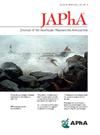在成人囊性纤维化中心实施门诊临床药学服务。
IF 2.5
4区 医学
Q3 PHARMACOLOGY & PHARMACY
Journal of the American Pharmacists Association
Pub Date : 2024-10-29
DOI:10.1016/j.japh.2024.102270
引用次数: 0
摘要
背景:沉重的治疗负担会对囊性纤维化患者(PwCF)的健康状况产生不利影响。目前仍需开展用药依从性教育,并进一步研究评估非住院治疗环境中 CF 药剂师干预措施的影响:评估将药剂师纳入成人 CF 门诊是否能通过各种药剂师干预措施对患者满意度和用药依从性产生积极影响:在一家城市医疗中心,成人 CF 护理团队中的一名临床药剂师对 PwCF 进行了综合咨询。在这些访问期间,药剂师的干预类型都被记录在案。对患者进行了基线和咨询后调查,以评估其对药剂师访问的满意度。在咨询前 12 个月和咨询后 12 个月,对囊性纤维化跨膜调节器(CFTR)调节剂和粘液溶解剂的依从性进行了跟踪调查:在药剂师对 100 名患者进行的 100 次访问中,共进行了 723 次药剂师干预。最常见的干预措施是吸入器技术教育(17%)、药物相互作用识别(12%)、提供药物教育材料(12%)和药物补充(12%)。在采取任何干预措施之前,97% 的患者认为他们可以从药剂师的访问中受益。咨询后的调查结果显示,98% 的患者认为药剂师的咨询有益。在药剂师干预前,CFTR 调节剂和粘液溶解剂的用药依从率分别为 81.9% 和 62.5%,而在药剂师干预后分别为 86.9% (p=0.143) 和 63.6% (p=0.773):结论:将临床药剂师纳入 CF 诊所有助于提高 PwCF 对药物使用的满意度和理解。几乎所有 PwCF 都对药剂师的咨询有好感。我们的报告显示,药剂师的各种干预措施,包括优化用药知识、加强依从性策略和简化及时获得治疗的途径,都有助于加强对 PwCF 的护理。本文章由计算机程序翻译,如有差异,请以英文原文为准。
Implementation of an outpatient clinical pharmacy service at an adult cystic fibrosis center
Background
High treatment burden can adversely impact health outcomes in people with cystic fibrosis (PwCF). There is a continued need for medication adherence education and further research to evaluate impact of cystic fibrosis (CF) pharmacist interventions in an ambulatory care setting.
Objectives
To evaluate whether pharmacist integration into an outpatient adult CF clinic can positively impact patient satisfaction and medication adherence through various pharmacist-based interventions.
Methods
At a single urban medical center, a clinical pharmacist on an adult CF care team conducted comprehensive counseling sessions with PwCF. During these visits, types of pharmacist interventions were documented. Patients were provided a baseline and postcounseling survey to assess satisfaction with the pharmacist visit. Adherence to cystic fibrosis transmembrane regulator (CFTR) modulator and mucolytics were tracked 12 months before and 12 months after the counseling session.
Results
A total of 723 pharmacist interventions were performed throughout 100 pharmacist visits in 100 PwCF. Most common interventions were inhaler technique education (17%), drug interaction identification (12%), provision of drug education material (12%), and medication refills (12%). Prior to any intervention, 97% of patients felt they could benefit from a pharmacist visit. Postcounseling survey results demonstrated that 98% of patients found pharmacist counseling to be beneficial. Medication adherence rate prior to pharmacy intervention was 81.9% for CFTR modulators and 62.5% for mucolytics, and 86.9% (P = 0.143) and 63.6% (P = 0.773), respectively, after pharmacist intervention.
Conclusion
Integration of a clinical pharmacist within the CF clinic can help improve satisfaction and understanding of medication use among PwCF. Nearly all PwCF favorably perceived pharmacist counseling. We report that various pharmacist interventions including optimizing medication use knowledge, reinforcing adherence strategies, and streamlining timely access to treatment can contribute to enhanced care of PwCF.
求助全文
通过发布文献求助,成功后即可免费获取论文全文。
去求助
来源期刊
CiteScore
3.30
自引率
14.30%
发文量
336
审稿时长
46 days
期刊介绍:
The Journal of the American Pharmacists Association is the official peer-reviewed journal of the American Pharmacists Association (APhA), providing information on pharmaceutical care, drug therapy, diseases and other health issues, trends in pharmacy practice and therapeutics, informed opinion, and original research. JAPhA publishes original research, reviews, experiences, and opinion articles that link science to contemporary pharmacy practice to improve patient care.

 求助内容:
求助内容: 应助结果提醒方式:
应助结果提醒方式:


